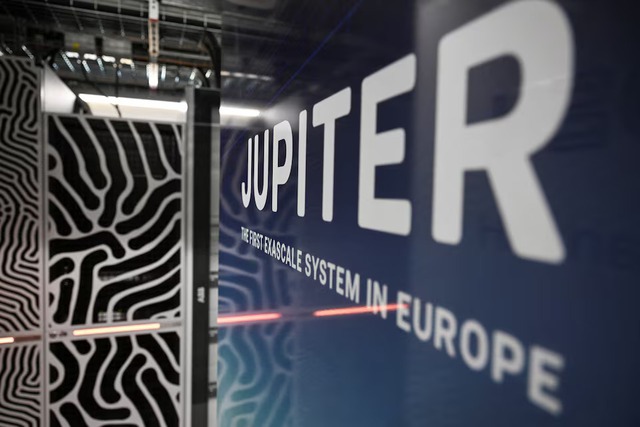
Jupiter, Nvidia's new high-performance computer, during its ceremonial launch, marking the start of operations for the first European supercomputer of the exascale class, at Juelich research center, in Juelich, Germany, September 5, 2025. Photo: Reuters
"We are today witnessing a historic European pioneering project," Merz said at the Juelich research center in western Germany, the site of the installation of the Jupiter supercomputer, which was also assembled by French IT group Atos (ATOS.PA) and German modular supercomputing company ParTec (JY0n.DE).
He said the U.S. and China were leading the race towards an AI-driven economy, but "we in Germany and in Europe have all the opportunities to catch up and then to hold our own".
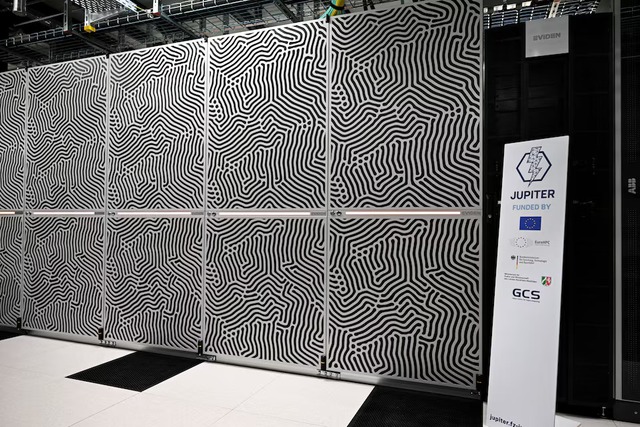
Jupiter, Nvidia's new high-performance computer, during its ceremonial launch, marking the start of operations for the first European supercomputer of the exascale class, at Juelich research center, in Juelich, Germany, September 5, 2025. Photo: Reuters
The start of Jupiter's operations marks the first European supercomputer of the Exascale class, mastering one billion times one billion calculations per second, also making it the region's fastest.
That amounts to the power of about 10 million standard notebook computers.
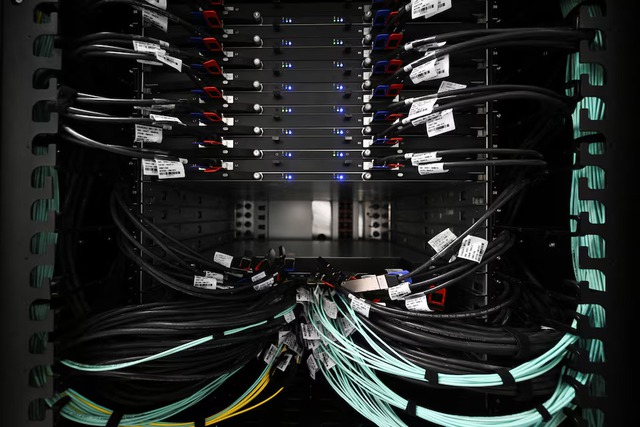
Jupiter, Nvidia's new high-performance computer, during its ceremonial launch, marking the start of operations for the first European supercomputer of the exascale class, at Juelich research center, in Juelich, Germany, September 5, 2025. Photo: Reuters
European institutions are aiming to stay competitive against the U.S. in supercomputers, used in scientific fields from biotechnology to climate research, seeking to avoid over-reliance on digital services from overseas.
Jupiter "will put Germany at the forefront of global high-performance computing and improve the conditions for the development of AI," said Ralf Wintergerst, head of digital business association Bitkom, adding that access to it should be made as unbureaucratic as possible for start-ups and established companies.
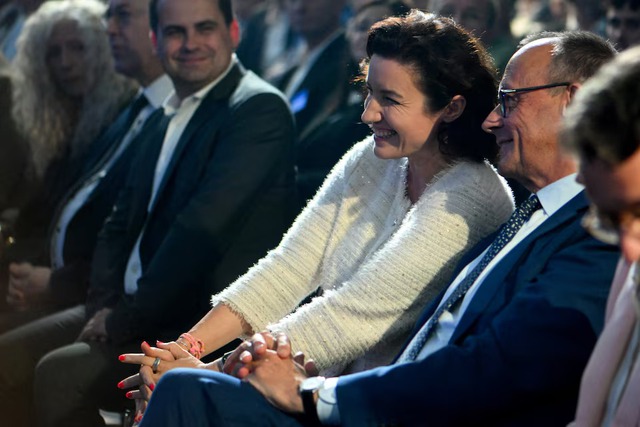
German Chancellor Friedrich Merz and Research, Technology and Space Minister Dorothee Baer attend the ceremonial launch of Jupiter, Nvidia's new high-performance computer, marking the start of operations for the first European supercomputer of the exascale class, at Juelich research center, in Juelich, Germany, September 5, 2025. Photo: Reuters

German Chancellor Friedrich Merz speaks at the ceremonial launch of Jupiter, Nvidia's new high-performance computer, marking the start of operations for the first European supercomputer of the exascale class, at Juelich research center, in Juelich, Germany, September 5, 2025. Photo: Reuters

German Research, Technology and Space Minister Dorothee Baer attends the ceremonial launch of Jupiter, Nvidia's new high-performance computer, marking the start of operations for the first European supercomputer of the exascale class, at Juelich research center, in Juelich, Germany, September 5, 2025. Photo: Reuters


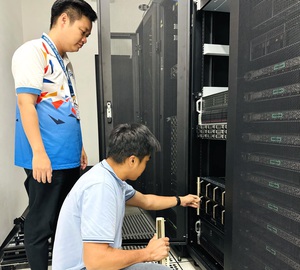
Max: 1500 characters
There are no comments yet. Be the first to comment.